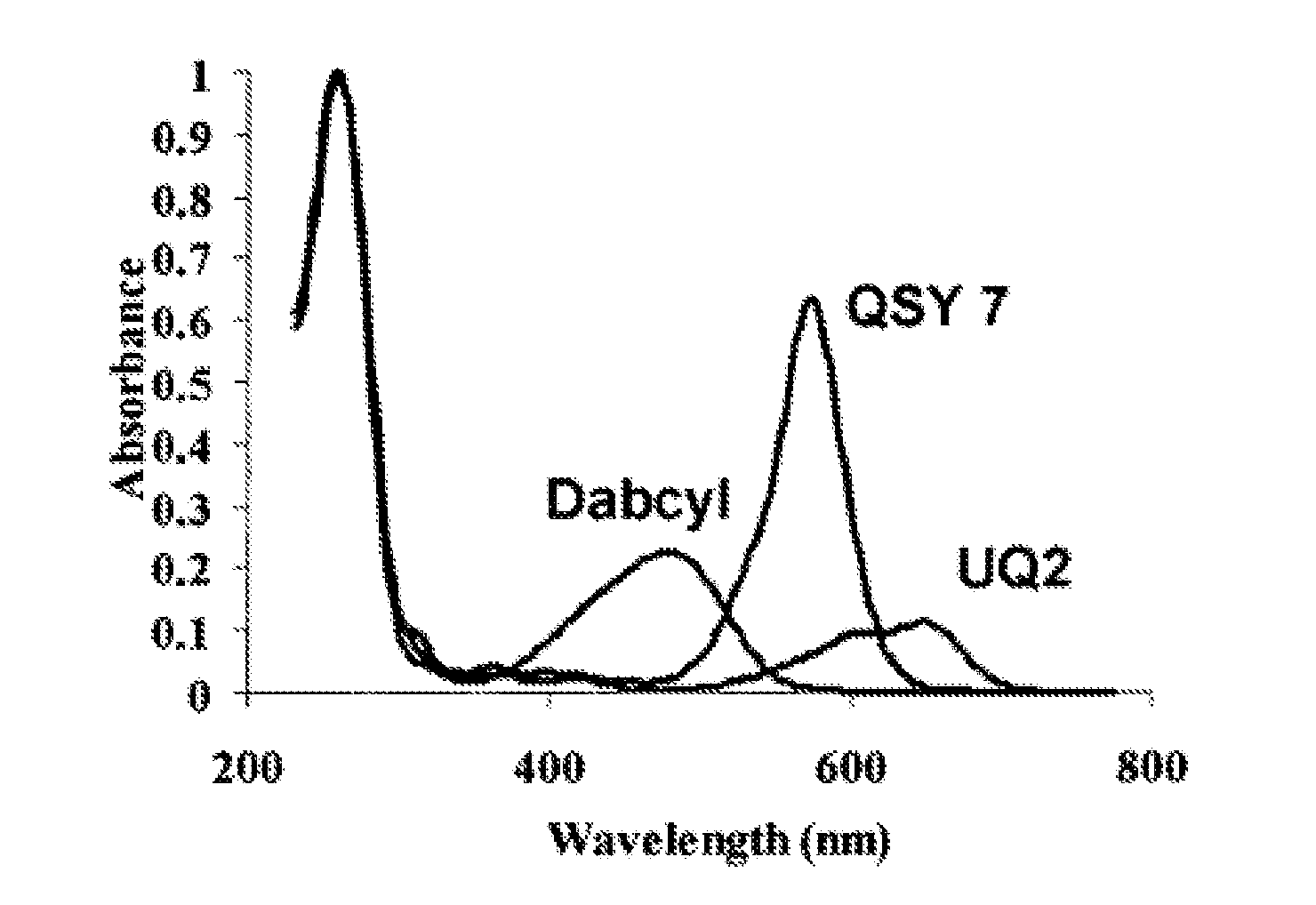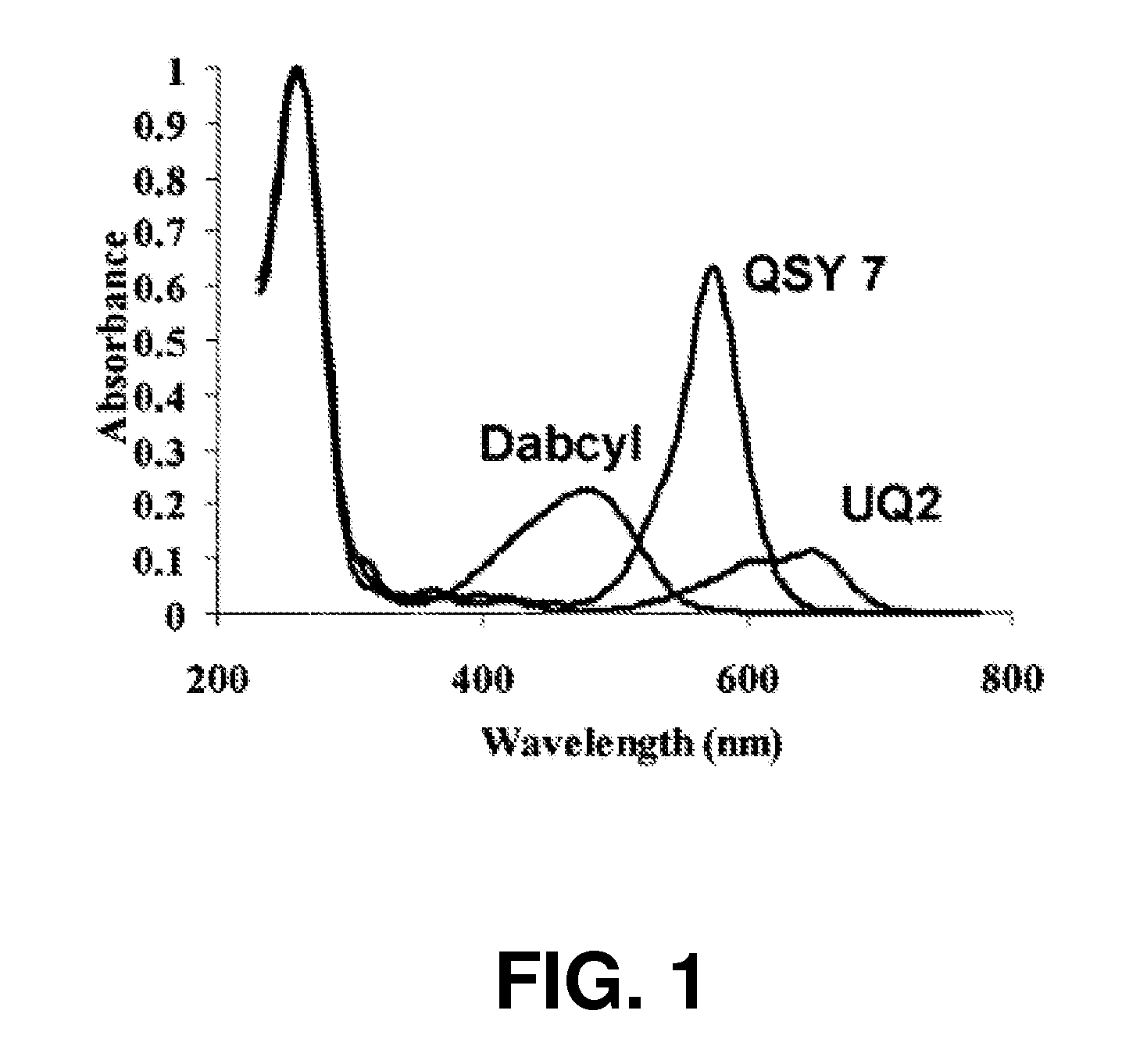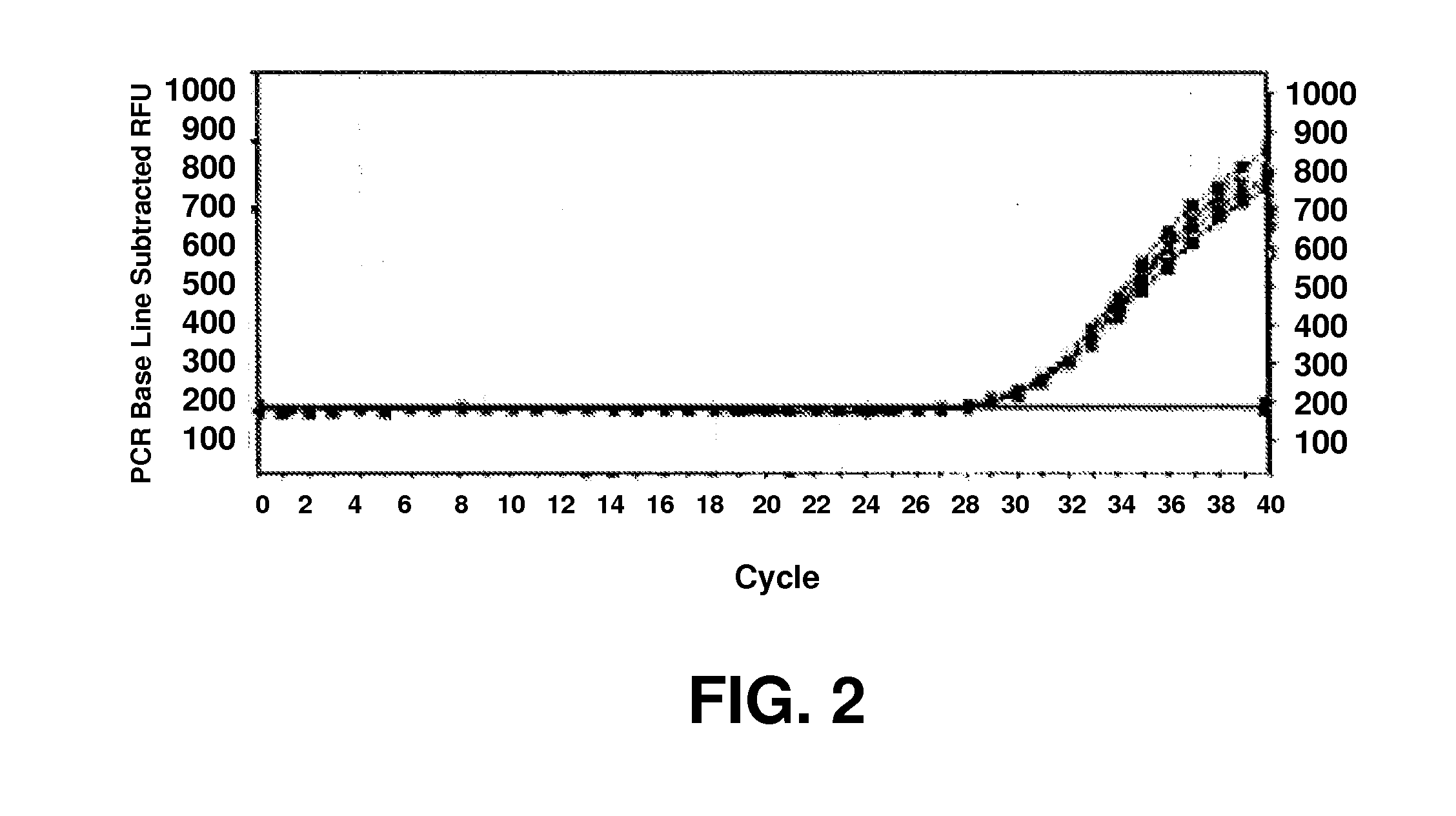Method of detecting fluorescence
a fluorescence and composition technology, applied in the field of anthraquinone compositions, can solve the problems of increasing the distance between the donor and quencher, increasing the fluorescent signal of the donor, and complicating the design of the prob
- Summary
- Abstract
- Description
- Claims
- Application Information
AI Technical Summary
Benefits of technology
Problems solved by technology
Method used
Image
Examples
example 1
[0063]This example demonstrates the conversion of 1,4-hydroxyl groups of an anthraquinone compound 1 to leaving groups as shown in Scheme 1. “E” in compound 2 can be any suitable leaving group. Many suitable leaving groups are known in the art and can be used, for example, halides, aryl alkylsulfonyloxy, substituted arylsulfonyloxy (e.g., tosyloxy or mesyloxy), substituted alkylsulfonyloxy (e.g., haloalkylsulfonyloxy), phenoxy or substituted phenoxy, and acyloxy groups. Compounds of type 1 are available commercially (e.g., Aldrich Chemical Co., Milwaukee, Wis.). The reaction requires a suitable base which includes bases having a pKa of about 10 or more. Suitable bases include alkylamine bases like triethylamine, dipropylamine; metal amide bases, including lithium amide, sodium amide, potassium amide, lithium tetramethylpiperidide, lithium diisopropylamide, lithium diethylamide, lithium dicyclohexylamide, sodium hexamethyldisilazide, and lithium hexamethyldisilazide; hydride bases in...
example 2
[0065]This example demonstrates the conversion of the 1,4-leaving groups of compound 2 to 1-substituted amino-4-β-hydroethylaminoanthraquinones 4 according to Scheme 2.
[0066]A solution of about 1 equivalent of compound 2 is dissolved in a suitable organic solvent under an inert atmosphere. Suitable solvents include polar aprotic solvents such as, dimethylformamide, acetonitrile, and dimethylsulfoxide in which compound 2 is soluble. The solution is maintained at room temperature during the addition of about 10 equivalents of the substituted amine and stirred for about 1 h to 4 h at a temperature of about 150° C. until the reaction is substantially complete as determined analytically by thin-layer chromatography or high-performance liquid chromatography. The reaction mixture is then cooled to room temperature and quenched to give compounds 3 and 3′. Compounds 3 and 3′
can be separated by flash chromatography or HPLC to obtain compound 3. Alternatively, compounds 3 and 3′ 9 can be treat...
example 3
[0068]This example demonstrates synthesis of 1-substituted amino-4-(2-cyanoethyl-phosphoramidite-ethylamino)-anthraquinone as shown in Scheme 3. A 2 M solution of anthraquinone 4 in triethylamine is prepared. The solution is cooled to about 0° C. and about 1-2 equivalents of a phosphonic chloride compound is added. The reaction mixture is warmed to room temperature and allowed to stir for about 4 h until the reaction is substantially complete as
determined analytically. The reaction mixture is quenched and compound 5 is isolated by standard procedures.
[0069]The method can be used to synthesize anthraquinone phosphoramidite compounds wherein each occurrence of R16, R17, and R7-10 is independently hydrogen, alkyl, alkynyl, alkenyl, aryl, heteroaryl, cycloalkyl, heteroalkyl, alkoxy, alkoxycarbonyl, carbonyl, carbamoyl, alkylaryl, heteroalkyl group, or the like. R2-6 are independently an electron pair, oxygen, hydrogen, alkyl, alkenyl, alkynyl, aryl, heteroaryl, cycloalkyl, heteroalkyl, ...
PUM
| Property | Measurement | Unit |
|---|---|---|
| wavelength | aaaaa | aaaaa |
| wavelength | aaaaa | aaaaa |
| wavelength range | aaaaa | aaaaa |
Abstract
Description
Claims
Application Information
 Login to View More
Login to View More - Generate Ideas
- Intellectual Property
- Life Sciences
- Materials
- Tech Scout
- Unparalleled Data Quality
- Higher Quality Content
- 60% Fewer Hallucinations
Browse by: Latest US Patents, China's latest patents, Technical Efficacy Thesaurus, Application Domain, Technology Topic, Popular Technical Reports.
© 2025 PatSnap. All rights reserved.Legal|Privacy policy|Modern Slavery Act Transparency Statement|Sitemap|About US| Contact US: help@patsnap.com



